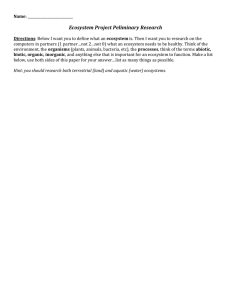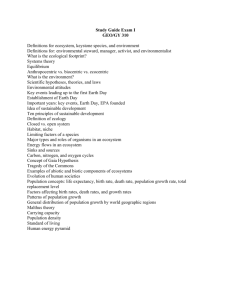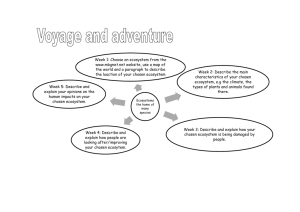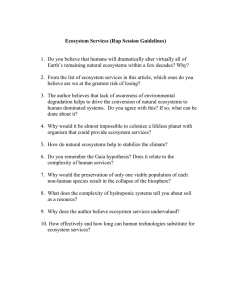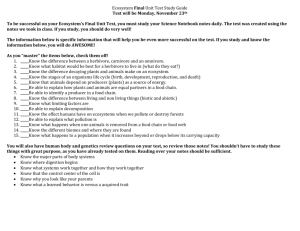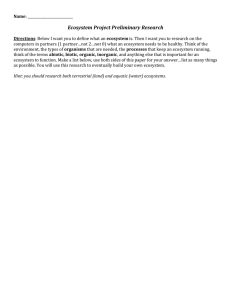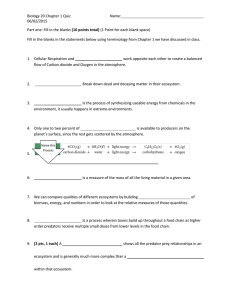October 5
advertisement
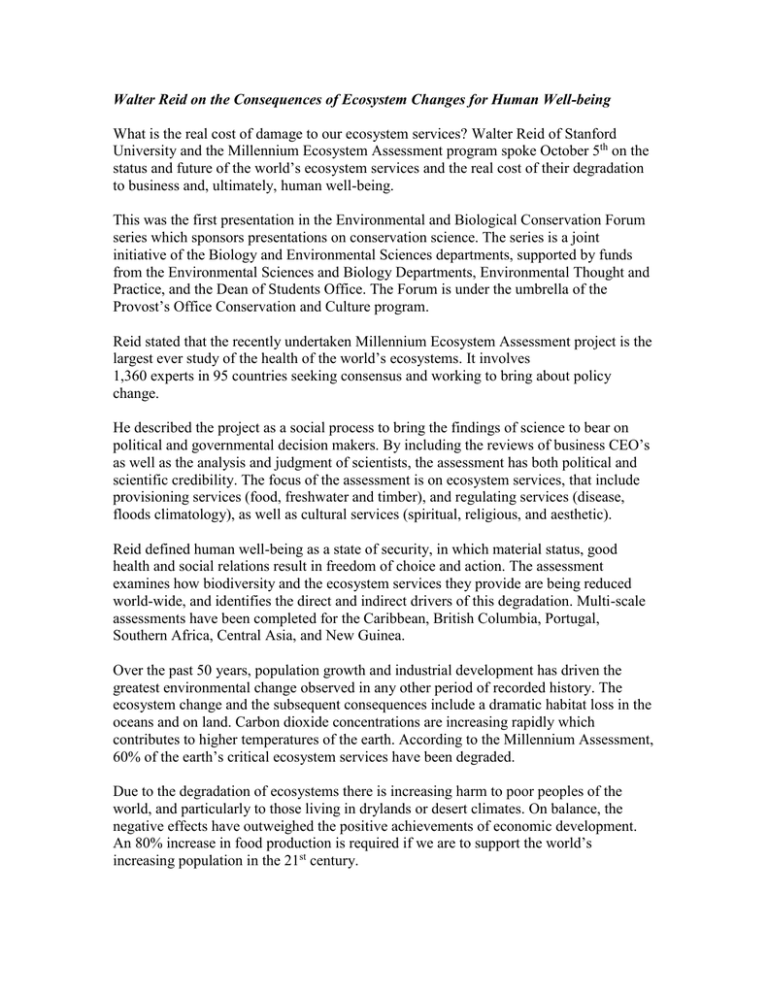
Walter Reid on the Consequences of Ecosystem Changes for Human Well-being What is the real cost of damage to our ecosystem services? Walter Reid of Stanford University and the Millennium Ecosystem Assessment program spoke October 5th on the status and future of the world’s ecosystem services and the real cost of their degradation to business and, ultimately, human well-being. This was the first presentation in the Environmental and Biological Conservation Forum series which sponsors presentations on conservation science. The series is a joint initiative of the Biology and Environmental Sciences departments, supported by funds from the Environmental Sciences and Biology Departments, Environmental Thought and Practice, and the Dean of Students Office. The Forum is under the umbrella of the Provost’s Office Conservation and Culture program. Reid stated that the recently undertaken Millennium Ecosystem Assessment project is the largest ever study of the health of the world’s ecosystems. It involves 1,360 experts in 95 countries seeking consensus and working to bring about policy change. He described the project as a social process to bring the findings of science to bear on political and governmental decision makers. By including the reviews of business CEO’s as well as the analysis and judgment of scientists, the assessment has both political and scientific credibility. The focus of the assessment is on ecosystem services, that include provisioning services (food, freshwater and timber), and regulating services (disease, floods climatology), as well as cultural services (spiritual, religious, and aesthetic). Reid defined human well-being as a state of security, in which material status, good health and social relations result in freedom of choice and action. The assessment examines how biodiversity and the ecosystem services they provide are being reduced world-wide, and identifies the direct and indirect drivers of this degradation. Multi-scale assessments have been completed for the Caribbean, British Columbia, Portugal, Southern Africa, Central Asia, and New Guinea. Over the past 50 years, population growth and industrial development has driven the greatest environmental change observed in any other period of recorded history. The ecosystem change and the subsequent consequences include a dramatic habitat loss in the oceans and on land. Carbon dioxide concentrations are increasing rapidly which contributes to higher temperatures of the earth. According to the Millennium Assessment, 60% of the earth’s critical ecosystem services have been degraded. Due to the degradation of ecosystems there is increasing harm to poor peoples of the world, and particularly to those living in drylands or desert climates. On balance, the negative effects have outweighed the positive achievements of economic development. An 80% increase in food production is required if we are to support the world’s increasing population in the 21st century. The findings of the Millennium Ecosystem Assessment reveal that multi-scale assessments offer the hope of reversing the pace of environmental degradation by 2050 if action is taken to eliminate subsidies and trade barriers, improve education and to reduce poverty. The message they convey is that we must measure, treat and invest in ecosystem services as valuable, quantifiable items so they can be paid for at their true cost.
